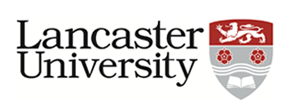新东方雅思入学测试-3 Reading
READING PASSAGE 3
You should spend about 20 minutes on Questions 27-40 which are based on Reading Passage 3 below.
Finding out about the world from television news
In The Ideological Octopus (1991), Justin Lewis points to an important issue concerning the formal structure of television news. As he notes, television news lacks the narrative element which, in other genres, nerves to capture viewer interest and thus motivate viewing. Lewis posits this as one of the key reasons why television news often fails to interest people and why, when they do watch it, people often cannot understand it. Lewis argues that one fundamental problem with watching television news is that its narrative structure means that the viewer is offered the punchline before the joke - because the main point (the headline) comes right at the beginning, after which the programme, by definition, deals with less and less important things. Thus, in television news our interest is not awakened by an enigma which is then gradually solved, to provide a gratifying solution – as so often happens in fictional narratives. In Lewis’s terms, in television news there is no enigma, the solution of which will motivate the viewing process. As the baldly states, 'If we decided to try to design a television programme with a structure that would completely fail to capture an audience’s interest. We might (finally) come up with the format of the average television news show' (Lewis 1991)
What Lewis also does is offer an interesting contrast, in this respect, between the high-status phenomenon of television news and the low-status genre of soap opera. The latter, he observes, offers the most highly developed use of effective narrative codes. To that extent soap opera, with its multiple narratives, could be seen, in formal terms, as the most effective type of television for the cultivation of viewer interest, and certainly as a far more effective form than that of television news for this purpose. Clearly, some of Lewis’s speculation here is problematic. There are counterexamples of his arguments (e.g. instances of programmes such as sports news which share the problematic formal features he points to but which are nonetheless popular – at least among certain types of viewers. Moreover, he may perhaps overstress the importance of structure as against content relevance in providing the basis for programme appeal. Nonetheless, I would suggest that his argument, in this respect, is of considerable interest.
Lewis argues not only that soap opera is more narratively interesting than television news, in formal terms, but, moreover, that the world of television fiction in general is much closer to most people’s lives than that presented in the news. This, he claims, is because the world of television fiction often feels to people like their own lives. They can, for example, readily identify with the moral issues and personal dilemmas faced by the characters in a favourite soap opera. Conversely, the world of television news is much more remote in all senses; it is a socially distant world populated by another race of special or ‘elite’ persons, the world of ‘them’ not ‘us’. This is also why ‘most people feel more able to evaluate TV fiction than TV news … because it seems closer to their own lives and to the world they live in … [whereas] the world of television news … might almost be beamed in from another planet’ (Lewis 1991). It is as if the distant world of ‘the news’ is so disconnected from popular experience that it is beyond critical judgement for many viewers. Hence, however alienated they feel from it, they nonetheless lack any alternative perspective on the events it portrays.
One consequence of this, Lewis argues, is that precisely, because of this distance, people who feel this kind of alienation from the ‘world of news’ nonetheless use frameworks to understand news items which come from within the news themselves. This, he argues, is because in the absence of any other source of information or perspective they are forced back on using the media’s own framework. Many viewers are simply unable to place the media’s portrayal of events in any other critical framework (where would they get it from?). To this extent, Lewis argues, Gerbner and his colleagues (see Gerbner et al. 1986; Signorielli and Morgan 1990) may perhaps be right in thinking that the dominant perspectives and ‘associative logics’ offered by the media may often simply be soaked up by audiences by sheer dint of their repetition. This is not to suggest that such viewers necessarily believe, or explicitly accept, these perspectives, but simply to note that they have no other place to start from, however cynical they may be, at a general level, about ‘not believing what you see on television’, and they may thus tend, in the end, to fall back on ‘what it said on TV’. In one sense, this could be said to be the converse of Hall’s ‘negotiated code’ (1980), as taken over from Parkin (1973). Parkin had argued that many working-class people display a ‘split consciousness’, whereby they accept propositions from the ‘dominant ideology’ at an abstract level, but then ‘negotiate’ or ‘discount’ the application of these ideological propositions to the particular circumstances of their own situation. Here, by contrast, we confront a situation where people often express cynicism in general (so that ‘not believing what you see in the media’ is no more than common sense), but then in any particular case they often find themselves pushed back into reliance on the mainstream media’s account of anything beyond the realm of their direct personal experience, simply for lack of any alternative perspective.
Question 27-34
Complete the summary blow using words from the box.
Write your answers in boxes 27-34 on your answer sheet.

Question 35-40 Do the following statements agree with the views of the writer in Reading Passage 2 In boxes35-40 on your answer sheet, write TRUE if the statement agrees with the information FALSE if the statement contradicts the information NOT GIVEN if there is no information on this 35 Lewis concentrates more on the structure of programmes than on what is actually in them 36 Lewis regrets viewers’ preference for soap operas over television news. 37 Lewis suggests that viewers sometimes find that television news contradicts their knowledge of the world. 38 Lewis believes that viewers have an inconsistent attitude towards the reliability of television news. 39 Parkin states that many working class people see themselves as exceptions to general beliefs. 40 The writer of the text believes that viewers should have a less passive attitude towards what they are told by the media.













